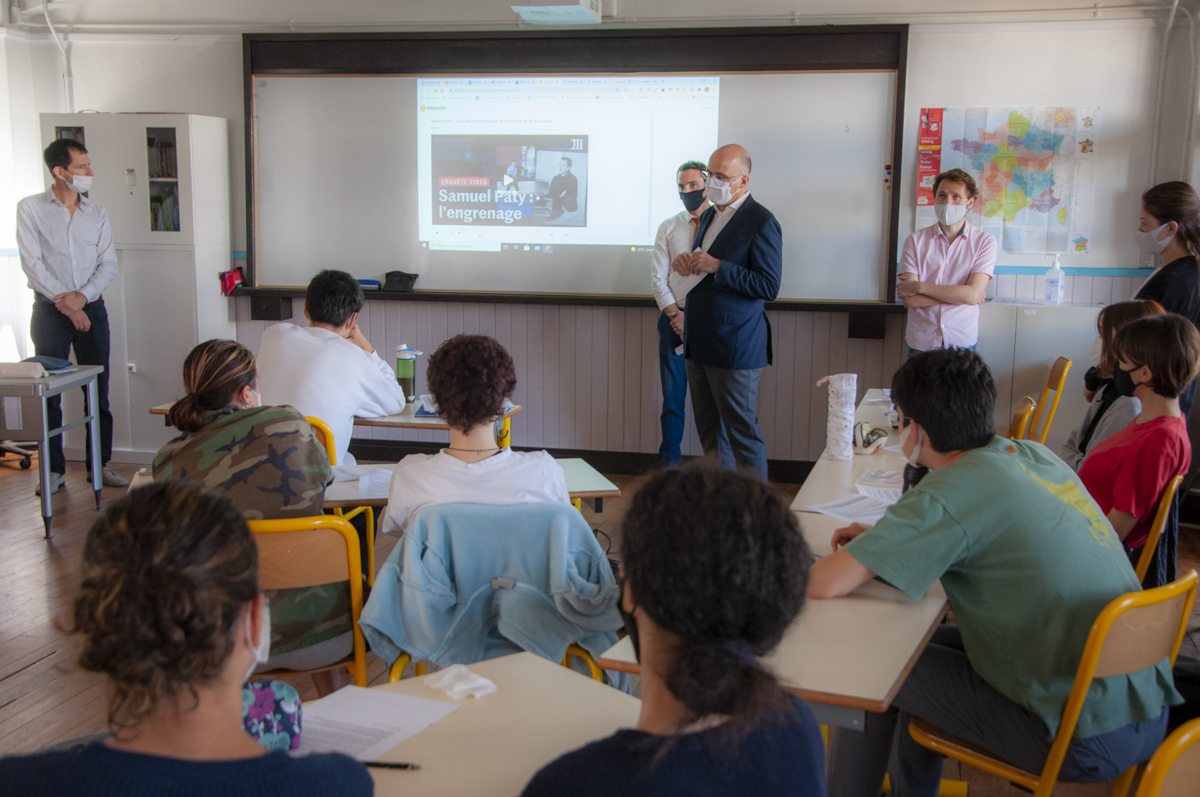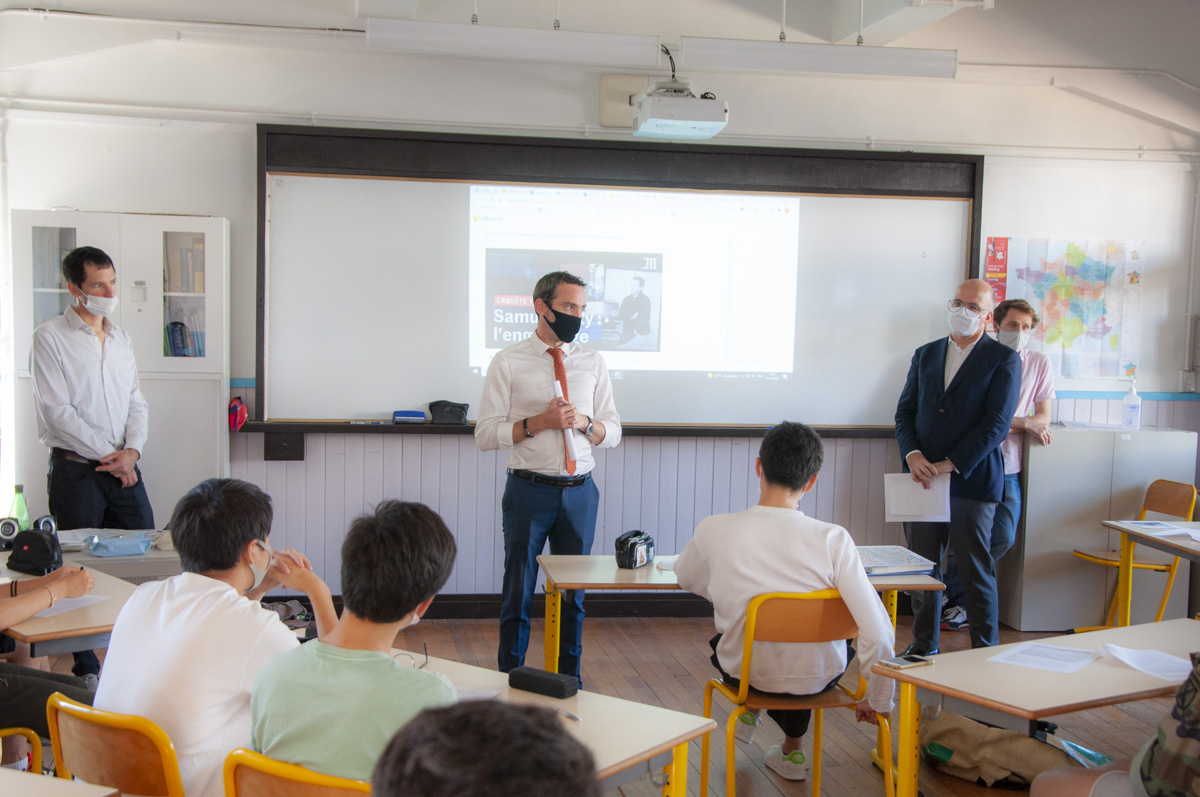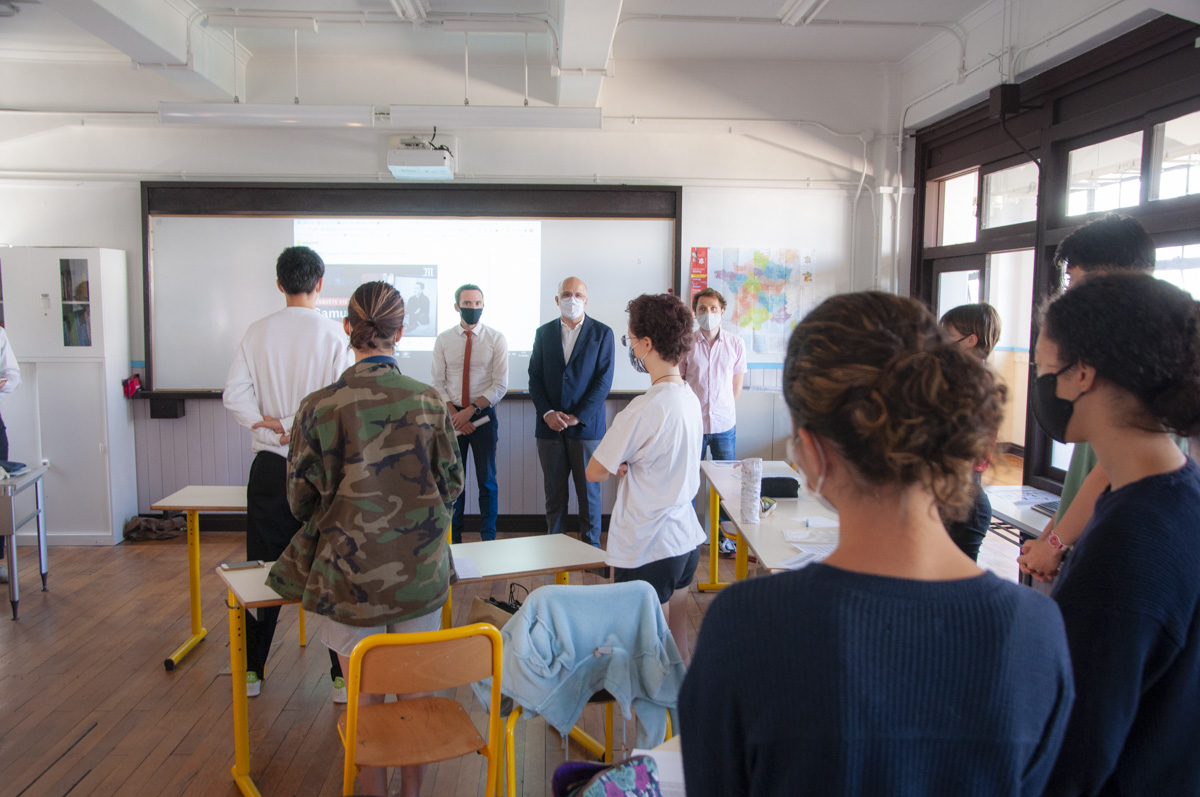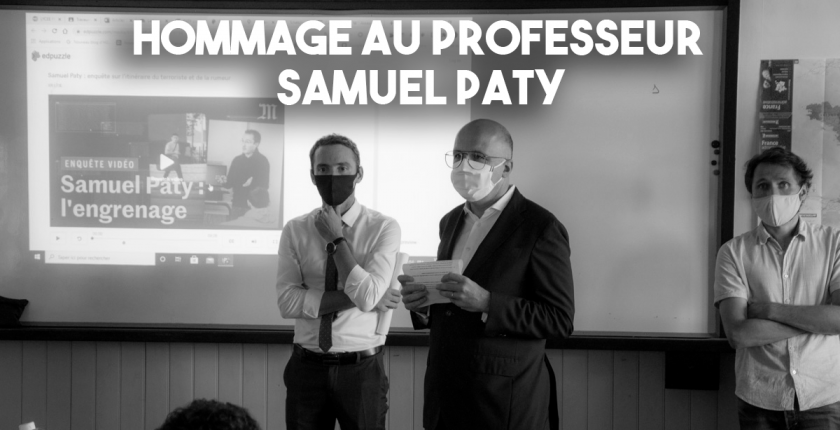Friday 15 October 2021 was the occasion for a commemoration to pay homage to Samuel PATY, history-geography teacher assassinated on 16 October 2020.
For this solemn moment, Mr. Jules IRRMANN, Consul General and Mr. Boris COLIN, Principal of LFI KYOTO, participated through the classes in the exchanges and reflections of the students and their teachers on the role and the place of the teacher, at school as in society. The “Letter to the teachers” of Jean Jaurès was read in class.
In his speech, Mr IRRMANN recalled the importance of training pupils to be critical, to reject dogma and to have freedom of expression.
At 10:30, in each class, students and teachers observed a minute of silence.
Letter to teachers
“You hold in your hands the intelligence and soul of children; you are responsible for the country. The children entrusted to you will not only have to write and decipher a letter, read a sign on a street corner, add and multiply. They are French and they must know France, its geography and its history: its body and its soul. They will be citizens and they must know what a free democracy is, what rights they have and what duties the sovereignty of the nation imposes on them. Finally, they will be men, and they must have an idea of man, they must know what is the root of all our miseries: egoism in its many forms; what is the principle of our greatness: pride united with tenderness.
They must be able to picture in broad strokes the human race gradually taming the brutalities of nature and the brutalities of instinct, and they must be able to see the main elements of this extraordinary work called civilisation. We must show them the greatness of thought; we must teach them the respect and worship of the soul by awakening in them the feeling of the infinite which is our joy, and also our strength, for it is through it that we shall triumph over evil, darkness and death.
What is this! All this to children! – Yes, all this, if you do not want to make mere spelling machines. I know how difficult the task is. You keep your pupils for a few years and they are not always assiduous, especially in the country. They forget in summer what little they have learned in winter. When they leave school, they often suffer deep relapses of ignorance and laziness of mind, and I would pity those of you who have great ambition for the education of the children of the people, if this great ambition did not imply great courage. […]
Knowing how to read well, the schoolboy, who is very curious, would soon have, with seven or eight chosen books, an idea, very general, it is true, but very high, of the history of the human race, of the structure of the world, of the history of the earth in the world, of the role of France in humanity. The teacher must intervene to help this first work of the mind; it is not necessary for him to say a lot, to give long lessons; it is enough that all the details he gives them clearly contribute to an overall picture. From what we know of primitive man to the man of today, what a prodigious transformation! And how easy it is for the teacher, in a few strokes, to make the child feel the unheard-of effort of human thought! […]
I therefore say to the teachers, to sum up: when, on the one hand, you have taught the children to read thoroughly, and when, on the other hand, in a few familiar and serious talks, you have spoken to them about the great things that interest human thought and conscience, you will have done the complete job of educators in a few years. In every intelligence there will be a summit, and on that day many things will change.
Jean Jaurès, La Dépêche, newspaper of the democracy of the South, 15 January 1888




